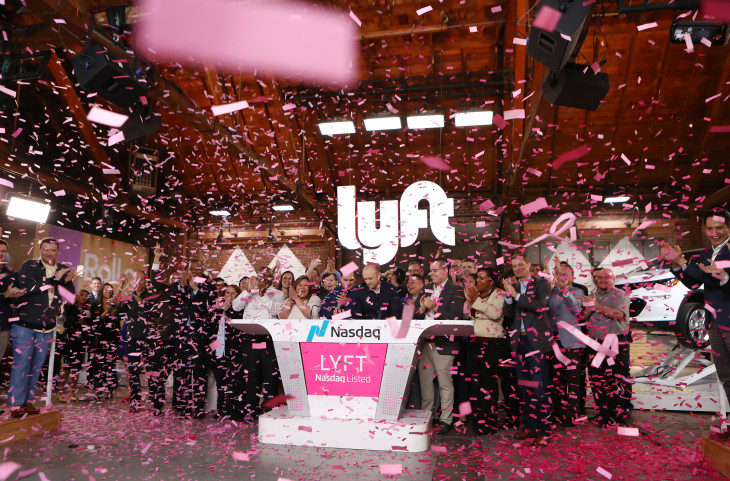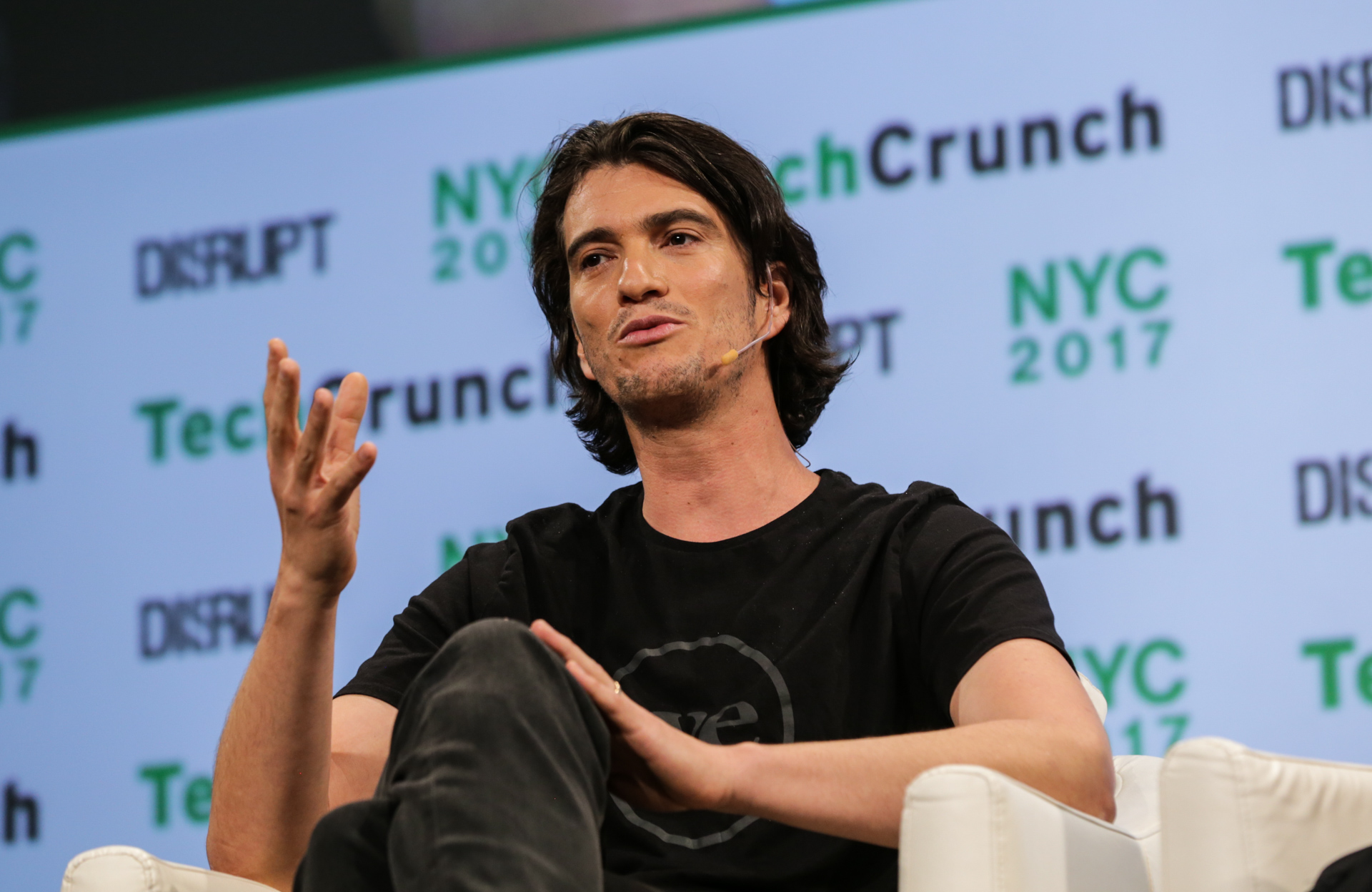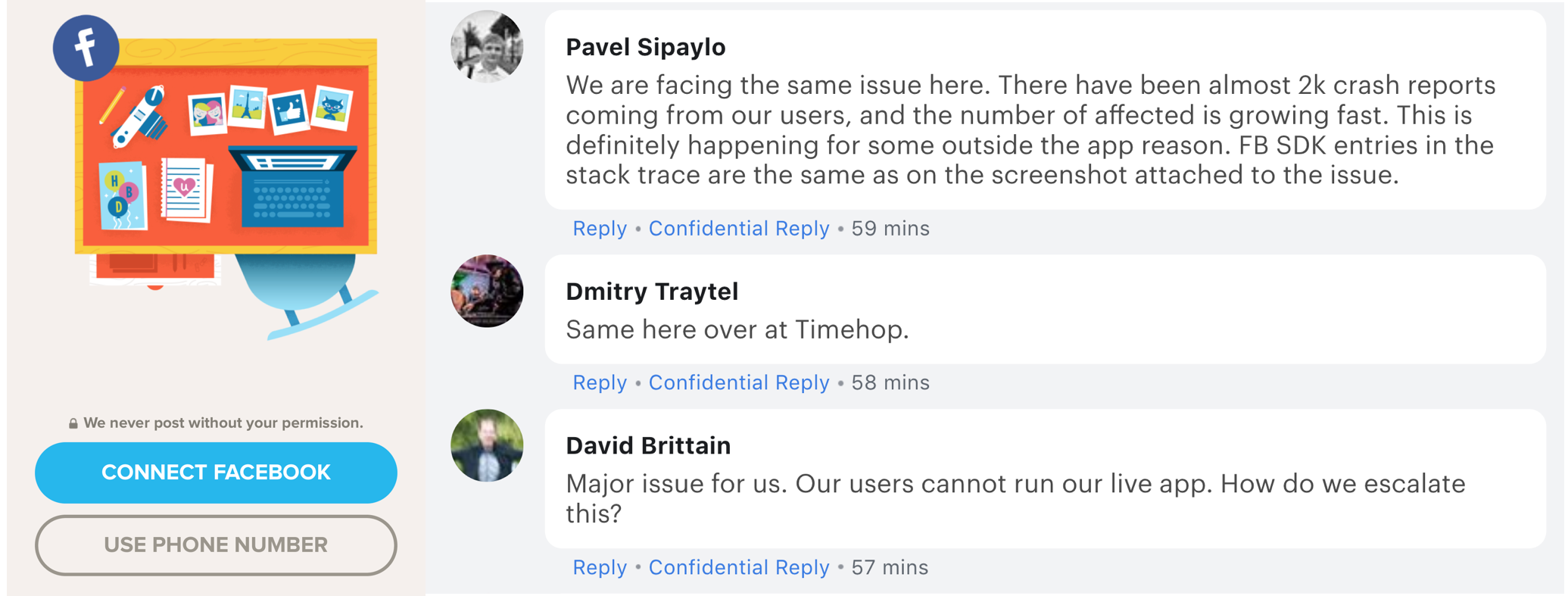Startups depend on the angel lifecycle. A few flush post-exit individuals put the first cash into a fresh venture. With some skill and plenty of luck, the early team grows the company into a big success. It sells or goes public and those team members earn a fortune. They then pay it forward by investing in the next generation of startups.
If they hoard their spoils they starve the early-stage ecosystem or leave founders stuck with dumb money from non-strategic financiers. If they redistribute their winnings, they can influence startup culture by deciding what, and more importantly, who gets funding.
But how does a co-founder or VP learn to be a mini-VC? That’s the goal of First Round Capital’s Angel Track, a free three-month workshop series in San Francisco and New York for learning how to source, vet, close, and support angel investments.

A scene from Angel Track’s first cohort
Every two weeks, an expert on some part of the investing process like finding deals or interviewing founders talks to the class, does Q&A, and then leaves the group to openly discuss what they learned and how to use it. Angel Track sessions have been tought by some of the smartest people in the valley like growth master Elad Gil, #ANGELS founding partner and former Twitter VP of corp dev Jessica Verrilli, and Precursor Ventures managing partner Charles Hudson.
Hundreds of startup execs apply for the 15 spots on each coast. After two classes in SF and one in NYC, today First Round unveiled its recently-graduated third cohort from programs in both cities. Those include Lucy Zhang who sold Facebook her chat startup Beluga that became the foundation of Messenger, and Mented Cosmetics co-founder and CEO KJ Miller. By the end of the program they’re taking joint pitch meetings from startups, showing each other the best questions to ask.
As with Y Combinator, it’s as much about the fellowship between new investors as the education. “It’s both a community and a masterclass” says First Round general partner Hayley Barna who oversees the NYC Angel Track. “It’s about bringing a talented group of emerging angels together to build a productive cohort of collaborators.”
She says diversity and inclusion is a big goal of the program, and it features 50% women and 20% underrepresented minorities. Being rich is not a pre-requisite. Barna declares “We’re not pulling in the bankers and the traders doing angel investing as a side-hustle.”

LOS ANGELES, CA – MARCH 29: Confetti falls as Lyft CEO Logan Green (C) rings the Nasdaq opening bell celebrating the company’s initial public offering (IPO) on March 29, 2019 in Los Angeles, California. The ride hailing app company’s shares were initially priced at $72. (Photo by Mario Tama/Getty Images)
After a slew of big 2019 IPOs from Uber, Lyft, Pinterest, Slack, and Zoom, there are plenty of newly-minted potential angels for First Round to teach. The venture firm benefits by building a cadre of co-investors or alternative backers for deals it vets, and through added visibility into the next top fundraises. Unlike some VC scout programs, there’s no formal obligation to send opportunities to First Round or pledge funding alongside it. That keeps it appealing to future investors that innovation hubs need to keep the circle of life flowing.
 “A lot of angel investors that got their start in the mid-to late 2000s, they’re almost all fund managers now. They went from angels or super angels to venture investors” First Round partner Brett Berson tells me. “There haven’t been a lot of people who’ve come in and filled that gap”, which could stunt the ecosystem’s growth. Graduates ramp up their angel investing while often staying in their operating roles, though some like former Pinterest head of culture Cat Lee who became a partner at Maveron turn investing into their day job.
“A lot of angel investors that got their start in the mid-to late 2000s, they’re almost all fund managers now. They went from angels or super angels to venture investors” First Round partner Brett Berson tells me. “There haven’t been a lot of people who’ve come in and filled that gap”, which could stunt the ecosystem’s growth. Graduates ramp up their angel investing while often staying in their operating roles, though some like former Pinterest head of culture Cat Lee who became a partner at Maveron turn investing into their day job.
First Round partner Ben Cmelja who helped launch the program explains that “Some people are doing it for the financial return. Some people want access to new ideas and are curious. Some people have a specific type of community they want to support with their investments.”
What Investors Learn From Angel Track
Becoming a successful angel means a lot more than evaluating term sheets. Just like how ideas are a dime a dozen and it’s about who can execute, fundraises are frequent but getting into the right ones takes hard work. First Round focuses on many of the soft skills required to win. Participants receive mentorship on how to:
- Develop an area of expertise and personal brand
- Mine their network for deals and post-investment assistance
- Assess market opportunities rigorously
- Judge an unproven startup’s team and product
- Convince a founder to let them into a round and negotiate terms
- Support their portfolio companies without being annoying
How to approach the delicate power balance of meetings with entrepreneurs can be especially tricky, so I spoke at length with First Round’s Phin Barnes about the session he teaches on founder interviews. I wanted to get a taste for what it’d be like in the classroom, despite First Round declining to let me attend the real thing. Turns out having a journalist in the room can disrupt a safe learning environment for budding angels.

First Round partner Phin Barnes
“Investing is a sell-side product” Barnes stresses. “Capital is a commodity, especially in this market. What you’re saying with a term sheet is that you think the founder’s equity is worth more than your dollars.” That means investors have to close the value gap with sweat.
Barnes gives me what he calls the ‘chocolate soufflé or brownies’ scenario. “The danger of being a smart, talented executive or entrepreneur is that when a founder talks to you about sugar and flour and butter, you start imagining a molten lava soufflé cake you’d build with the ingredients. You invest, and then the founder comes back with a tray of brownies. ‘That’s not what I thought I invested in!'”
The mistake comes in envisioning what you’d do rather than really listening to the founder — the one who’s cooking. Instead of trying to hijack the roadmap or being disappointed by the direction, angels need to help make those brownies as tasty as possible. That means entering into interviews with an open mind.
“You should be positively inclined to invest and have some critical questions. If you don’t think you should invest, you shouldn’t have the meeting in the first place” Barnes explains. “You want to hold that perspective loosely and as new information comes to light, you want to check ‘Am I still interested?’ By the end you want to know what you don’t know, and the open questions you need to answer to validate your hypothesis.”
The four main areas of evaluation are:
The market — Why does this category of product need to exist? What would the world look like if they dominate the category? Can they clearly explain to a five-year old the problem they’re trying to solve? What’s their contrarian thinking? And what motivation will keep them persevering to address the problem despite setbacks and opportunity cost?
The product — Is addressing this specific customer problem unique and defensible? It’s less about if the product is good or bad, or should the button be red or blue. It’s more about how the founder took the inputs and made the decision and how they process information. Have them walk you through the go-to-market plan and see how they shift between high-level strategy and ground-level tactics.
The team — Do they have on-paper talent like PhDs or experience? Can they iterate quickly? You have to weed out victims and look for people who are learners that evolve when faced with adversity. Do your homework on who they are before so you can dig deeper into how they tick. Ask how they show trust in their team and how they get their team to trust them. Have them tell you about the most important thing that happened at the company in the last week to understand their priorities and emotional connection to the process.
The relationship with the founder — Investors need to ask what the best way to work with them is, and what founders are looking for in support from an investor. Do they want a hands-off investor who only chimes in when summoned, or do they expect frequent co-building sessions? Do they need more help accessing a bigger network for hiring and partnerships, or industry-specific expertise to navigate complex decisions?

“We have two roles. We interview and then we coach” Barnes says, providing tips for both. “The very best questions are open-ended. They start with a how/what/why and end with a question mark. Double-barreled questions are terrible. Ask them what would you do, and stop. Get comfortable with silence. They’ll usually fill the silence with something off-script that reveals a deeper truth.” Only once has a founder asked Barnes ‘are you ok?’ in response to his inquisitive stare.
Being able to summarize what you’ve learned lets you quickly cross-check your assumptions with the founder and get helpful corrections. That helps you figure out what questions you still need to ask and keep a diligent list of what you’ll need to research after.
When it comes to giving an answer on whether you’ll invest, “Second best to a quick yes is a quick no with a strong point of view and information for the entrepreneur. The worst is ghosting people. 90% of people operate that way but that’s not the way to do it” Barnes emphasizes. “If you walk out without a yes, no, or what to learn more about in specific detail, you’ve failed as an investor and wasted the time of the entrepreneur.”
The antidote to dumb money
“It was like the perfect mix of your favorite college seminar and a super practical apprenticeship” says Ariana Poursartip, the VP of product for fintech startup Petal who was in the first NYC Angel Track class. “I came away with a better sense of my personal investing approach, and a community of fellow angel investors who I’ll continue to learn from for years.”‘
Fostering better educated angels is crucial for enabling founders. “Dumb money” from investors without expertise in a relevant space, connections they’ll leverage to help, or an understanding of what startups need can be dangerous. It can lead founders to raise more but inefficient capital and make slower progress that puts them at risk of a future down-round that can trigger a startup death spiral.

First Round’s Angel Track cohort 3
First Round is far from the only one trying to fill the angel gap. “Initiatives like Spearhead, YC’s Startup Investor School, and scout programs help lower the barrier to entry for many people who will be terrific and helpful investors for startups” says Cmejla. Sequoia, General Catalyst, Village Global and more run their own scout networks. There are some questionable programs out there too, though, like Venture University which charges from $4,000 to $65,000 for its programs that require students to source deals in exchange for a hazy profit-sharing agreement.
 Cmejla insists “It isn’t about providing the capital, a short crash course, or a path to becoming a full-time VC, but about building a durable community that members can lean on and lean into as they level up.” Instead, First Round scores a way to connect founders it funds with relevant angels from its classes. That incentivizes the firm to teach savvy etiquette. Barna warns “You want to be thorough, but if you’re putting in a small check, you can’t ask founders to jump through too many hoops . . . and spend five hours just to get that dinky paycheck.”
Cmejla insists “It isn’t about providing the capital, a short crash course, or a path to becoming a full-time VC, but about building a durable community that members can lean on and lean into as they level up.” Instead, First Round scores a way to connect founders it funds with relevant angels from its classes. That incentivizes the firm to teach savvy etiquette. Barna warns “You want to be thorough, but if you’re putting in a small check, you can’t ask founders to jump through too many hoops . . . and spend five hours just to get that dinky paycheck.”
Past Angel Track participants like Poursartip and Instacart VP of growth Bengaly Kaba tell me they wish the program got them spending more time together both during and after the class, which could spur deeper alliances. “Currently the program ends and there is no formal programming to keep the alumni cohorts engaged and connected” Kaba notes. Many already back startups brought to the class by their peers. Still, Square Cash app product lead Ayo Omojola wanted a stronger structure like perhaps a syndicate so cohort-mates could do more investing together.
What they all cited was the massive value of learning to codify what they’re looking for and what they bring to the table. Kaba highlighted how he enjoyed “Hearing how Elad Gil, [Floodgate co-founding partner] Ann Muira-Ko, Charles Hudson and other guest speakers defined their investment theses around macro trends, industry specific insights, and founder traits.”

When the lock-ups expire on recent IPOs and employees start getting liquidity, “you’re going to see a whole new generation of investors get going over the next couple of years” says Berson.
Not every company spawns the same quality of investor, though. Companies like Uber that empower less-senior team members as the ride sharing company does with regional general managers tend to develop talent with the self-direction and conviction to be great angels. Looking back, you similarly see more angels and founders emerging from more decentralized Google than top-down Apple.
As software eats the world, unicorns proliferate, and the proceeds of tech’s winning streak are spread wide, more and more people will be ready to write angel checks. “It will most likely materially accelerate over the next 12-24 months” Berson concludes. Those without the skills could squander what they’ve earned. Angels who know what makes them special and can evaluate startups without getting swept up in the hype will crown the queens of tomorrow.
https://ift.tt/2IZLshH The IPO’d learn investing at First Round’s Angel Track https://ift.tt/2FHuDG3








 Great times ahead.
Great times ahead. 

 I got fired about 3 in.
I got fired about 3 in. 














